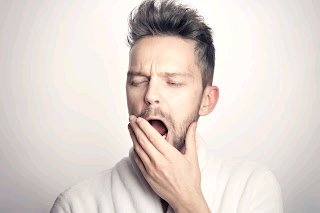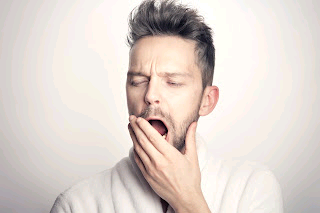
According to national sleep foundation guildness, an healthy adult needs between 7 and 9 hours of sleep per night, people of age 65 and above are advice to have a 7 to 8 hours of sleep on a night basis.

Generally speaking, it is good to have a full night sleep at any age for a healthy living
Globally, around one-third of people experience difficulties in sleeping and unsatisfied sleep. when these difficulties meet some criteria it is diagnosed as insomnia.
What is insomnia ?
insomnia is a sleep disorder in which you have trouble falling asleep, hard to stay asleep, or waking up early and not getting back to sleep.
What are the cause of insomnia?
The cause of insomnia may be temporarily, often result from physical or psychological factors, however, other causes of insomnia maybe as a result of some medical conditions, or the use of certain drugs.
The common causes of insomnia are;
• poor sleep habits: These includes; using your smartphones, watching TV, using your computer, playing video games, and any other light screen gadgets before going to bed. It is medically recommended that if a device with screen is to be used late at night before going to bed, a photochromic anti blue light eye glasses should be worn
• Stress: The thought of our activities such as work, business, school, finances, and family can keep our mind active during the night leading to difficulty in sleeping.
• Eating heavy meal or too much of food late in the evening
• mental health disorder: • medical conditions, such as diabetes, asthma, cancer, • • • Parkinson's disease, heart disease make it difficult to sleep at night.
• Taking nicotine or caffeine drinks, such as; cocoa, coffee in the evening can cause a sleepless night, also tobacco a nicotine contained product can stop you from sleeping at night.
• Gastro intestinal reflux disease
• Medications: certain over-the-counter drugs such as pain relievers, blood pressure drug, cold medications can interfere your sleep at night.
• Alzheimer's disease: This neurological disease changes brain activities and this in turn changes sleep pattern.
What are the symptoms of insomnia?
• waking up too early or in the middle of the night without any disturbance
• finding it difficult to sleep at night
• anxiety or depression
• not feeling relaxed after a night's sleep
• waking up with headache after a night's sleep, usually may be a sign of not getting enough sleep
what are the types of insomnia?
Insomnia can be classified by it duration, severity, and cause
Classification by duration
• Chronic insomnia: usually last for months or years
• Short time insomnia
Classification by severity
• Moderate insomnia (may affect daily activities)
• Mid insomnia (sleeplessness that leads to tiredness)
• Severe insomnia
Insomnia is also classified as;
Primary insomnia: Insomnia in which sleep problems are not associated to any other problems or health condition.
Secondary insomnia: caused by health condition such as cancer, taking caffeine or nicotine and other products, and also medications.
What are the effects of insomnia?
Fatigue: it's one of the most common effects of insomnia, weak muscles, tiredness, headaches and what comes with this effect
• it may affect brain performance
• may affect the immune system
What are the treatment or cure of insomnia?
Insomnia on its own may not require any treatment (especially acute insomnia), However, chronic insomnia can be detrimental if not taken care of.
Some treatment options are;
• Prescription of medications
• medical advice (taking counseling from a medical expert to improve sleeping habits)
• Over the counter sleeping drugs.
Home remedies for insomnia
• Yoga
• Doing exercise regularly
• Using lavender oil: Taking a lavender oil capsule improve sleep, lowers anxiety level, reduce pain, improves mood. taking lavender tea also helps a lot
• Taking a warm bath before going to bed
Prevention of insomnia
• Developing a good sleeping habit
• Avoid intake of nicotined or caffeinated products late in the afternoon, or evening
• Non use of any screen gadget at night and, if to be used, make use of photochromic anti blue light glasses
• Develop a good eating habit,
Get out of bed if you don't fall asleep within 20 minutes
Keep your bedroom dark when going to bed. lighted rooms interfere with sleep.
A lack of sleep can lead to various problems. if you are having trouble sleeping, consult a doctor.
Your Health ¦ Your Wealth
0 comments
Be the first to comment!
This post is waiting for your feedback.
Share your thoughts and join the conversation.
